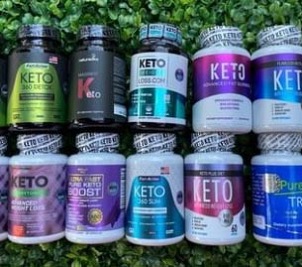Ketone supplements could revolutionize brain injury treatment and aid in neuroregeneration
Sebastian Lavoie Fact checked by:Thailand Medical News Team Sep 03, 2024 1 year, 3 months, 2 weeks, 16 hours, 29 minutes ago
Medical News: Brain injuries and neurodegenerative diseases continue to challenge the medical field, with millions affected each year worldwide. From strokes to traumatic brain injuries (TBIs), the consequences of such conditions can be devastating, leading to significant disabilities and economic burdens.
 Ketone supplements could revolutionize brain injury
Ketone supplements could revolutionize brain injury
treatment and aid in neuroregeneration
Researchers from the University of South Florida-USA and Ketone Technologies LLC-USA have recently made a breakthrough discovery that could change the way we approach neuroregeneration. This
Medical News report will explore their findings on the neuroregenerative potential of D,L-sodium-beta-hydroxybutyrate (D/L-BHB), a ketone body, and its potential applications in treating nervous system injuries.
The Promise of Ketone Bodies
Ketone bodies, including D/L-BHB, have long been considered an alternative fuel source for the brain, especially when glucose availability is limited. This research sought to determine whether D/L-BHB could enhance neuroregeneration, particularly in scenarios where central nervous system (CNS) injuries occur, such as strokes, concussions, and TBIs.
To simulate CNS injuries, the researchers used primary cortical neurons from Sprague Dawley rats, exposing them to a scratch assay - a method that mimics injury in cell cultures. The study aimed to observe neuronal cell migration, cell density, and regeneration in the damaged areas with and without the presence of BHB.
Key Findings: BHB Enhances Neuroregeneration
The study's results were nothing short of remarkable. The presence of BHB significantly increased cell density in the damaged areas after 24 hours compared to the control group. Specifically, the gap size in the BHB-treated samples decreased by 10.83%, whereas it increased by 63.81% in the control group. This represents a 74.64% improvement in the BHB-treated samples, indicating that BHB treatment enhances the body's ability to heal and regenerate damaged neurons.
The study highlights that BHB treatment also led to a 97.27% increase in cell density within the damaged areas, demonstrating the compound's potential in promoting cellular repair and regeneration. Furthermore, the distance traveled and velocity of migrating cells were significantly higher in the BHB-treated samples, further supporting the idea that BHB enhances neuroregenerative processes.
The Role of Synapsin-I and Beta-III Tubulin
The researchers also observed a significant increase in the presence of synapsin-I and beta-III tubulin in the BHB-treated cultures. These proteins are critical markers for synaptogenesis (the formation of synapses between neurons) and axonogenesis (the growth of axons from neurons). Synapsin-I, in particular, plays a vital role in regulating axonogenesis and synaptogenesis, which are essential processes for neuroregeneration.
Fluorescent staining showed that the density of sy
napsin-I and beta-III tubulin was markedly higher in the BHB-treated samples compared to the control group. This increase in protein density further underscores the potential of BHB to enhance neural regeneration and repair damaged neural connections.
Potential Clinical Applications
The implications of these findings are vast and could pave the way for new therapeutic approaches to treating brain injuries. The researchers suggest that D/L-BHB could be used in the future to enhance neuroregeneration in patients with conditions such as TBI, stroke, concussion, and other CNS injuries.
One of the most exciting potential applications is in the treatment of brain injuries caused by procedures such as brain implants. These implants, often used to treat conditions like Parkinson's disease or depression, can cause damage to brain tissue. The ability to enhance neuroregeneration with BHB could improve patient outcomes and reduce the long-term impact of these procedures.
The Mechanisms Behind BHB's Effects
While the exact mechanisms by which BHB enhances neuroregeneration are still being studied, several possibilities have been proposed. BHB may serve as an alternative fuel source to glucose, particularly in scenarios where glucose metabolism is impaired, such as during CNS injuries. By providing an alternative energy source, BHB could help maintain cellular function and promote repair processes.
Additionally, BHB may enhance cerebral blood flow, increasing the supply of oxygen and nutrients to damaged areas, thereby supporting the regeneration of neural tissues. The compound may also increase the production of brain-derived neurotrophic factor (BDNF), a protein that supports the survival of existing neurons and encourages the growth of new neurons and synapses.
Long-Term Potential and Future Research
The study findings were published in the peer-reviewed journal Pharmaceuticals. While the results are promising, further research is needed to fully understand the mechanisms behind BHB's neuroregenerative effects and to determine the most effective ways to use this compound in clinical settings.
Future studies should focus on exploring different dosages and methods of administering BHB, as well as its long-term effects on neuroregeneration. Additionally, research should investigate whether BHB could be used in combination with other therapies to enhance its efficacy further.
Conclusion
In conclusion, the discovery that D/L-BHB can significantly enhance neuroregeneration opens up exciting possibilities for treating brain injuries and neurodegenerative diseases. By serving as an alternative energy source and promoting the repair of damaged neural tissues, BHB could revolutionize the way we approach these conditions. While more research is needed, the potential applications of this compound are vast and could lead to significant improvements in patient outcomes.
The study findings were published in the peer-reviewed journal Pharmaceuticals.
https://www.mdpi.com/1424-8247/17/9/1160
For the latest on neuroregeneration, keep on logging to Thailand
Medical News.
Read Also:
https://www.thailandmedical.news/news/new-hope-for-nerve-repair-breakthrough-in-axon-regeneration
https://www.thailandmedical.news/news/breaking-a-new-approach-to-nerve-regeneration-utilizing-developmental-genes
